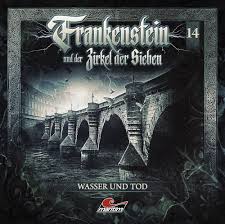Frankenstein: The Legacy and Relevance of a Classic Novel

Introduction
Mary Shelley’s “Frankenstein” is often regarded as one of the cornerstone texts of Gothic literature and a seminal work in the science fiction genre. Published in 1818, the novel explores profound themes such as the quest for knowledge, the duality of human nature, and the ethical implications of scientific advancement. Its significance continues to resonate now more than ever, as modern society grapples with rapid technological growth and ethical dilemmas.
Overview of the Novel
“Frankenstein” tells the story of Victor Frankenstein, a scientist who becomes obsessed with creating life. His experiments lead to the creation of a creature, often referred to as Frankenstein’s monster. However, instead of the triumph he envisioned, Victor is met with horror and betrayal, as the creature seeks acceptance in a world that shuns him.
The Themes
The novel raises critical questions about humanity’s relationship with technology and the consequences of playing God. It delves into the idea of parental responsibility, as Victor abandons his creation, leading to tragic consequences. Additionally, the quest for identity, isolation, and the impact of societal rejection are central themes that many readers connect with across generations.
Modern Relevance
Today, “Frankenstein” is more relevant than ever. As advancements in genetics, artificial intelligence, and biotechnology continue at an unprecedented pace, ethical dilemmas reminiscent of Shelley’s narrative arise. For instance, discussions surrounding gene editing technologies like CRISPR and the development of AI bring forward concerns about the implications of ‘creating’ life and the responsibilities of those who wield such power.
Moreover, the portrayal of the monster resonates with marginalized groups in our society. The creature, alienated and rejected, symbolizes the struggles of those facing discrimination or identity crises, making the novel a rich ground for sociocultural discussions.
Conclusion
Mary Shelley’s “Frankenstein” is more than just a story of horror; it is a profound exploration of what it means to be human. As we navigate the complexities of modern science and ethics, the lessons from Shelley’s novel remain significant. Its ability to inspire reflection and debate about the consequences of our technological ambitions ensures that its legacy endures, serving as a poignant reminder of the responsibility that comes with creation. Looking ahead, continuing to engage with these themes will be crucial as we strive to ensure that science serves humanity ethically and compassionately.









